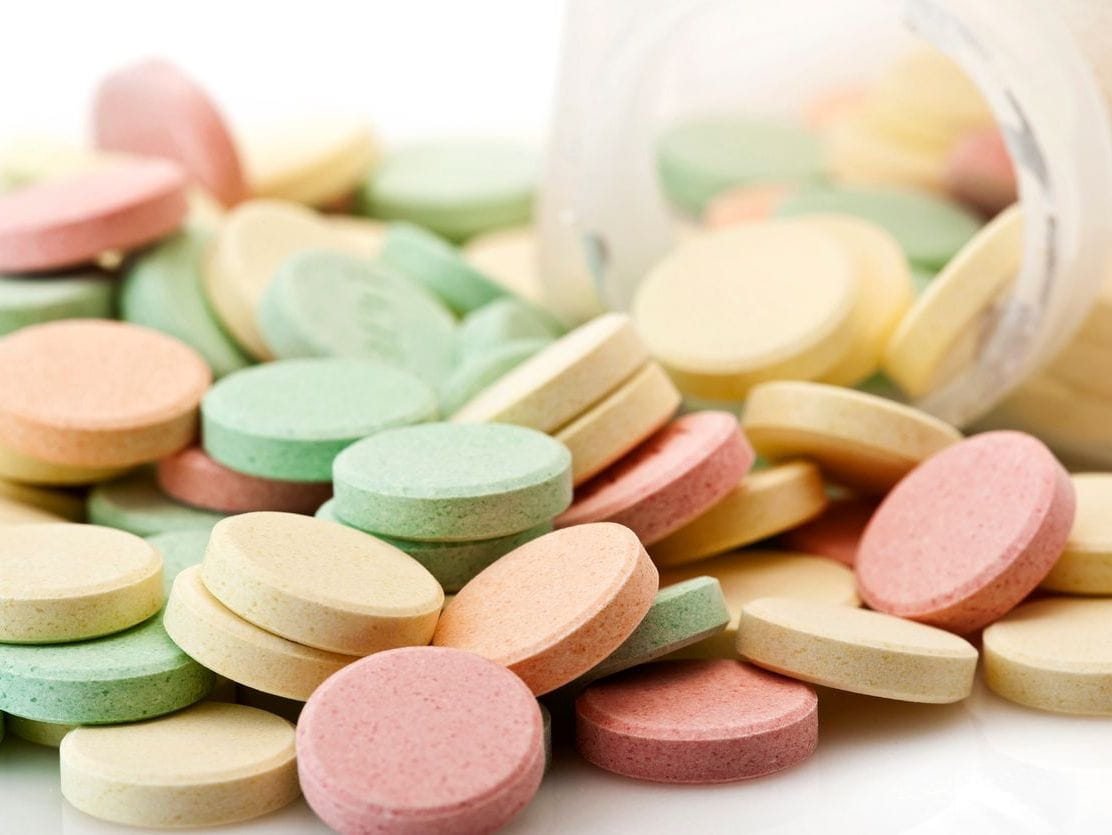Are Over-the-Counter Antacids Safe?

The Bottom Line
Antacids buffer stomach acid and provide relief from heartburn and indigestion. When taken as directed, antacids are considered safe. Excessive or long-term use can result in toxicity. There are several important drug interactions caused by antacids.

What are antacids?
Antacids are weak alkaline compounds that neutralize stomach acid. The stomach naturally produces hydrochloric acid to help break down and digest food. Following a heavy meal – or if there is increased pressure in the stomach – this acid can leak out of the stomach and back up into the esophagus, or food pipe. The esophagus does not have the same thick, protective mucus lining that allows the stomach to handle an acidic environment, resulting in burning, pain, and discomfort in the chest and abdomen (i.e., heartburn or indigestion). Antacids, because they are alkaline, act as buffering agents and neutralize the acid content of the stomach to relieve these symptoms.
What is in antacids?
The most common buffering agents in over-the-counter (OTC) antacids are calcium carbonate (e.g., TUMS), magnesium carbonate (e.g., Gaviscon), aluminum hydroxide or magnesium hydroxide (e.g., Mylanta), or sodium bicarbonate (e.g., Alka-Selzer). These compounds work quickly and are intended for short-term use for the occasional symptoms of indigestion. They are available in several forms such as chewable tablets, liquids, and powders. Some products will contain more than one antacid or an antacid with another ingredient, like simethicone, for gas relief.
This article does not focus on medications used to prevent or reduce gastric acid production or secretion, commonly prescribed for individuals with chronic conditions such gastroesophageal reflux disease or stomach ulcers. These medications are proton pump inhibitors or H2 histamine blockers and include common brands like Nexium, Prilosec, Zantac, and Pepcid.
Are antacids safe?
Yes. Antacids are generally well-tolerated and considered safe when taken as directed. The most common side effects are diarrhea or constipation. Generally, magnesium-containing antacids are associated with diarrhea while aluminum-containing antacids tend to cause constipation. Toxicity is rare but can develop in certain situations. In particular, toxicity can result from chronic and/or excessive use, or when combined with underlying risk factors, such as kidney disease. Patients on a salt- or magnesium-restricted diet should talk to their doctor or healthcare professional about which antacids are appropriate and safe to take.
Some OTC antacids contain aspirin. Examples are Alka-Seltzer Original and Bromo Seltzer, among others. In 2016, the US Food & Drug Administration issued a warning due to the risk of serious bleeding from aspirin in certain patients. If you have any of the risk factors (e.g., 60 years of age or older, history of stomach ulcers, history of bleeding problems, taking blood thinners or steroids, taking aspirin or other nonsteroidal anti-inflammatory drugs like ibuprofen or naproxen, or drink three or more alcoholic drinks daily), it is not safe for you to take an aspirin-containing antacid.
Is it safe to take antacids every day?
Antacids are intended for occasional or short-term use. You should not take antacids daily for long periods unless advised by a doctor. If you have more frequent, persistent, or chronic heartburn or indigestion – as opposed to the occasional one you may get after eating a heavy or spicy meal – visit your doctor for evaluation, since this may indicate or lead to a more serious medical issue.
The safety of daily antacid use depends on many factors, such as the length of use, the type of antacid, the amount taken per day, and patient characteristics like age, weight, and risk factors. Taking an excessive amount of a sodium bicarbonate antacid can result in sodium toxicity. Furthermore, because sodium bicarbonate is alkaline, too much can result in body-wide alkalosis (the pH of the blood becomes higher than normal). Although rare, the same principle applies to other antacids such as calcium, magnesium, or aluminum. Taking more than the recommended amount or for a longer period than recommended has the potential to result in changes to the body's calcium, magnesium, and aluminum levels, which will, in turn, affect body systems including the heart and kidneys.
What medications should not be taken with antacids?
Antacids interact with several medications. If you take an antacid infrequently and for short periods, the possible interactions are not likely to be significant.
Antacids can interact with other medications in several ways. Some medications are dependent on the pH of the stomach for absorption. Because antacids alter the pH of the stomach, they can affect how a drug is absorbed, resulting in either lower or higher amounts of the drug. They may also chemically bind to some drugs, lowering the total dose absorbed. Sodium bicarbonate can alter the pH of the urine which may affect the blood concentration of drugs that depend on urine pH for excretion from the body.
Notable interactions are:
- Antibiotics in the tetracycline and fluoroquinolone family
- Bisphosphonates (e.g., Fosamax, Actonel, Boniva)
- Chlorpromazine
- Digoxin
- Eltrombopag
- Isoniazid
- Phenytoin
- Quinidine
- Sotalol
- Tyrosine kinase inhibitors (such as dasatinib, imatinib)
There are several factors to consider when determining drug-drug interactions with antacids. First, remember that there are many types of antacids (e.g., calcium carbonate vs. sodium bicarbonate). Second, if an interaction is known to exist, it is important to know what the nature of the interaction is and whether it will result in an increased or decreased blood concentration of either drug. Third, determine the significance (e.g., how severe are the symptoms that may result from an interaction?) And finally, consider what needs to be done about it (e.g., you may simply need to space the two medications apart by a few hours).
These are important factors to consider especially if you take antacids frequently, regularly, or chronically. Ask a healthcare professional for help checking for possible antacid interactions. They can also help you determine if the interaction is mild or potentially serious, and what your next steps should be.
There are several free online drug-drug interaction checkers available to the public. However, a healthcare professional’s guidance may be necessary to consider all variables and translate these interactions into action.
Is it safe to take antacids during pregnancy?
Sodium-bicarbonate-containing antacids are generally not advised during pregnancy due to their sodium content. Antacids containing calcium, magnesium, and aluminum are generally considered safe during pregnancy as long as they are taken as directed. They belong to pregnancy categories A, B, or C. Nonetheless, every pregnant woman and fetus has their own unique needs. If you’re experiencing heartburn or indigestion during pregnancy, it’s important to first discuss options with your obstetrician, family doctor, or healthcare professional.
What should I do if I take too much antacid?
If you’re concerned about taking too much antacid, don’t panic and do not induce vomiting. Use the online webPOISONCONTROL tool for guidance or call Poison Control at 1-800-222-1222. Whether online or on the phone, Poison Control is always free, confidential, and available 24 hours a day.
Wendy Klein-Schwartz, Pharm.D., MPH
Clinical Toxicologist
Poison Control Media Information
Did you find this page helpful? If so, we need your support. Poison Control is in constant competition with misinformation online. Links to www.poison.org or our webPOISONCONTROL triage tool from other websites and blogs help internet searchers quickly find accurate information and Poison Control’s contact information in an emergency. If you use the content from this page, please provide attribution via a link back to this page, www.poison.org, or https://triage.webpoisoncontrol.org/#!/exclusions. By doing so, you could save a life. Thank you!
Poisoned?
Call 1-800-222-1222 or
Prevention Tips
- Store medicines up and away, out of sight and reach of children.
- Before taking an over-the-counter antacid, carefully read and understand the drug label.
- Take antacids only as directed. Never take more than the recommended amount, or for a longer period than recommended.
- Consult a healthcare professional before taking an over-the-counter antacid if you are or may become pregnant, have a pre-existing condition, take one or more medications, or are on a sodium- or magnesium-restricted diet.
This Really Happened
A 35-year-old man presented to an emergency department with severe drowsiness. Laboratory studies revealed a blood pH that was higher than normal (i.e., alkalosis) and significantly low sodium, potassium, and chloride levels. He was admitted to the intensive care unit where he was given medications to help correct these pH and electrolyte abnormalities. He recovered over the next 24 hours. Upon recovery, he was able to provide additional history about the cause of his symptoms: over 2 days, before presenting to the emergency department, he drank four 500 mL bottles of Gaviscon (ingredients included sodium bicarbonate and calcium carbonate) to treat heartburn. The recommended dose was 10 to 20 mL, 3 to 4 times per day.For More Information
My Child Got Into The Baking Soda | Poison ControlReferences
Black R, Hill A. Over-the-counter medications in pregnancy. Am Fam Physician. 2003;67(12):2517-24.
Poisoned?
Call 1-800-222-1222 or
Prevention Tips
- Store medicines up and away, out of sight and reach of children.
- Before taking an over-the-counter antacid, carefully read and understand the drug label.
- Take antacids only as directed. Never take more than the recommended amount, or for a longer period than recommended.
- Consult a healthcare professional before taking an over-the-counter antacid if you are or may become pregnant, have a pre-existing condition, take one or more medications, or are on a sodium- or magnesium-restricted diet.
